Danny Elfman Royal Albert Hall Concert Review
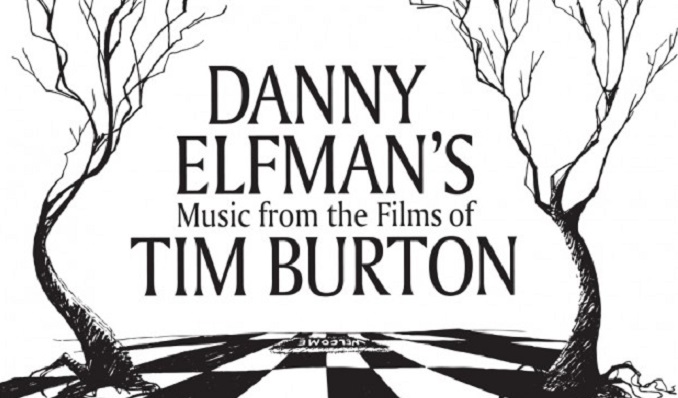
The Event:
Composer Danny Elfman and the BBC Concert Orchestra performed a selection of music from the films of Tim Burton, from Edward Scissorhands to Alice In Wonderland, showcasing a comprehensive collection of kooky musical magic in the lavish surroundings of the Royal Albert Hall.
The Good:
There are few creative collaborations that have yielded such marvellous and unique results as the union between Director Tim Burton and Composer Danny Elfman. It’s simply impossible to understate how much of a debt Burton’s work owes to the haunting, beautiful and anarchic soundtracks Danny Elfman has given them.
Burton is often praised for his wondrous dark visuals, but they would be utterly robbed of magic and personality without Elfman’s music. Elfman’s distinctive sounds gave Big Fish it’s whimsy, Batman its heroism and Pee-Wee his hysterical energy. It’s a rare privilege to hear them all performed by a premium quality orchestra under the expert conduction of John Mauceri.
It’s especially fascinating to see Elfman’s trademark sounds created live, with crashing drums and trumpets mingling with the haunting harmonies of the Maida Vale Singers. An array of strange instruments and frantic orchestral work matches perfectly with a giant screen showing memorable artwork and clips from Burton’s accompanying films.
Fans were also treated to a surprise performance by one of Tim Burton’s other loves/muses. Helena Bonham Carter took to the stage armed with huge hair and gothic charm to croon her way through Sally’s Song. What she lacks in vocal power she easily makes up for in sheer stage presence.
The undisputed highlight of the night is when Elfman himself took to the stage to perform a medley of songs from cult classic The Nightmare Before Christmas. His theatrical performance and jerky dancing compliments a stellar vocal performance as Jack The Pumpkin King. Elfman’s obvious glee at getting to personally bring his beloved songs to one of the most famous stages in the world is infectious, spreading quickly from the front row to the farthest comers of the theatre. Throughout the hall endless rows of spectators sat happily captivating by Elfman’s eerie melodies.
The Bad:
In truth the only slight disappointment on an otherwise rapturous night of musical celebration is that the performance is limited to Elfman’s endless collaborations with Tim Burton. Elfman is responsible for so many iconic scores, from Spider-Man to The Simpson that in an ideal world the programme might have sacrificed less adored works like Planet of The Apes in favour of a little more variety and those crowd-pleasing favourites.
The Ugly Truth:
Danny Elfman proudly proclaimed the night to the best of his entire life. Many of the ecstatic audience seemed to share that sentiment, honouring his eccentric genius with frequent bouts of thunderous applause and eager standing ovations. Seeing Burton and Elfman stand hand in hand at the final curtain call is the perfect way to draw a close to over two hours of musical magnificence.
Programme Set List:
Charlie and the Chocolate Factory
Pee-Wee’s Big Adventure
Beetlejuice
Sleepy Hollow
Mars Attacks!
Big Fish
Batman/Batman Returns
Interval
Planet of The Apes
Corpse Bride
Dark Shadows
Frankenweenie
The Nightmare Before Christmas
Edward Scissorhands
Alice In Wonderland
Filth Review
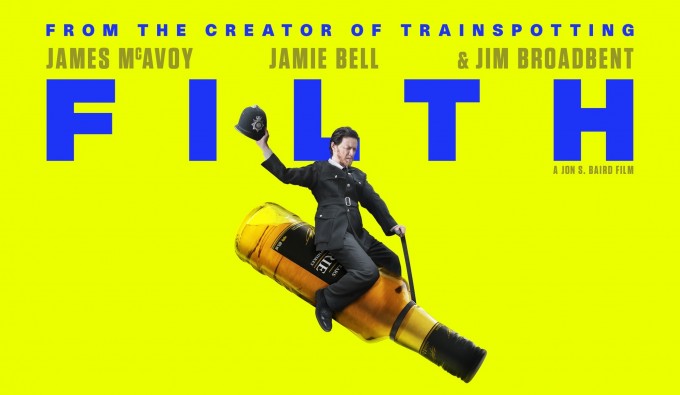
The Plot:
Bruce Robertson is an unapologetically depraved bigoted and misogynistic Edinburgh cop. Fuelled by drugs, alcohol and obvious mental health issues he ruthlessly pursues a promotion by systematically attempting to discredit and humiliate his colleagues. It’s soon clear however that the ultimate goal of his vicious schemes is to win back his estranged wife and daughter.
The Good:
Trainspotting proved that Irvine Welsh’s ironically rude and bold words could successfully be lifted from the page to the big screen. With Filth director Jon S. Baird follows a similar template and produces an adaptation which captures much of the tone, furious wit and vitriol of the original novel.
Leading man James McAvoy physically transforms himself completely to deliver a brutally powerful performance that’s equally charismatic and repulsive. In his hands Bruce lurches convincingly from likeable schemer to despicable villain with the full force of bipolar moods swings. It’s the highest compliment to McAvoy’s performance that audiences will despise, enjoy and pity Bruce throughout the course of the entire film.
Around McAvoy’s vicious central performance the supporting cast of Filth breathes grimy life into the world of 1990s Scotland. Eddie Marsan deserves particular praise as the nerdy accountant Bruce befriends and unrelenting bullies.
Trainspotting was heavily reliant on a note perfect soundtrack and thankfully Filth is able to rely on an equally evocative mix of memorable music. Deliberately misplaced joyful tracks help take the edge of some of the film’s more harrowing moments, whilst a haunting rendition of Radiohead’s iconic anthem Creep adds heightened poignancy to the film’s end game.
The Bad:
Much like Irvine Welsh’s seminal classic Trainspotting, Filth plunges head first into the darkness of deranged depravity and human failure. Watching our vice ridden anti-hero’s increasingly horrific downward spiral will undoubtedly offend, disgust or sadden more sensitive viewers. A deceptively upbeat soundtrack and black comedy won’t be enough to distract everyone from the grim realities the sordid tale truly exposes.
It you scratch beneath the thin veneer of foul mouthed comedy and lurid distractions, Filth is really a disturbingly honest look inside the deeply tormented mind of an alcoholic junkie haunted by nightmarish hallucinations. It’s not an experience everyone will welcome or easily forget.
Those hoping to merely enjoy the maniacal ride with an unapologetic anti-hero will be disappointed to see Bruce left at times so pathetically pitiable and tragic. However equally there won’t be nearly enough soul searching redemption for some people to overcome their initial revulsion to the character.
The Ugly Truth:
Filth is a loud lurid tale that eagerly tries to live up to all the visceral promise of its provocative title. At least in that regard, the film certainly succeeds, thanks to a relentless unashamed parade of smirking smut and sneering cynicism. James McAvoy delivers a transformative performance that adds nasty menace to his usually sweet natured repertoire. Whether good or bad, Filth is certain to provoke an intense reaction.
Red Carpet Interview with James McAvoy his co-stars, director and author Irvine Welsh below:
Austenland Review
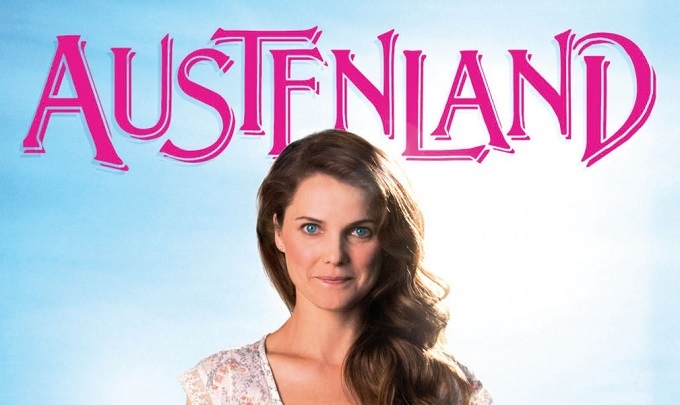
The Plot:
Jane a modern day singleton obsessed with the world of Jane Austen and romantic ideals of Pride & Prejudice impulsively spends her life savings to visit an Austen themed holiday resort. Living in costume surrounded by professional actors, Jane hopes for a life changing experience living out her fantasies. But as the sparks of real life romance start to fly it soon becomes hard to tell where make believe ends and real love starts.
The Good:
Austen’s well known romantic clichés and the devoted obsession it inspires in modern day fans provide an easy target for comedy. It’s not too challenging to parody stern heartthrobs in britches and dashing sideburns or hysterical heroines in corsets and bonnets. Many will no doubt be pleased to see this silly satire take aim at the melodramatic seriousness of Mr Darcy themed fantasies.
Keri Russell does an adequate job as Austen obsessive and hapless romantic Jane. Though it’s actually JJ Fields and Flight of the Conchords star Brett McKenzie that commendably breathe some valuable likeability into the pretend Mr Darcy and real life stable hand that might both prove the answer to Jane’s romantic dreams. This at least gives the film some intrigue in its later stages.
Those with a real life love of Colin Firth’s smouldering Mr Darcy may take some joy from seeing it lampooned, especially if they have a taste for uncomplicated farce.
The Bad:
Much like Hess’s breakout success Napoleon Dynamite, Austenland is slow moving and will irritate some just as much as it amuses others. Hess’s obvious taste in eccentric oddity and campy kitsch definitely isn’t universally shared. Ultimately it just depends whether you prefer to greet frequent displays of cringe inducing awkwardness with a whimsical smile or an infuriated sneer.
As an example Jennifer Coolidge, best known for memorable supporting turns in American Pie and Legally Blonde, yet again plays a tactless buxom loudmouth. In previous roles this may have been amusing or endearing, but listening to her mangled deliberately awful attempts at an English accent is simply excruciating. It’s a perfect indication of the kind of heavy handed laughs the film continually offers up.
Brash American’s failing atrociously to imitate British accents, wit and sophistication is the kind of lazy laughs often found in children’s films. The same could be said of much of the film’s slapstick attempts at humour. Many of Austenland’s inhabitants, including snobbish proprietor Mrs. Wattlesbrook played by Jane Seymour, seem to be borrowed from a film aimed at a much younger audience than Hess likely ever intended.
The Ugly Truth:
Austenland gradually improves but never succeeds in matching the romantic heights of real Austen. A good soundtrack and occasional flashes of comedic or romantic chemistry keep thing’s watchable but feel more like redeeming features than a real joy. Ultimately Austenland provides a little light amusement, especially if you have a particular passion for period drama.
About Time Review
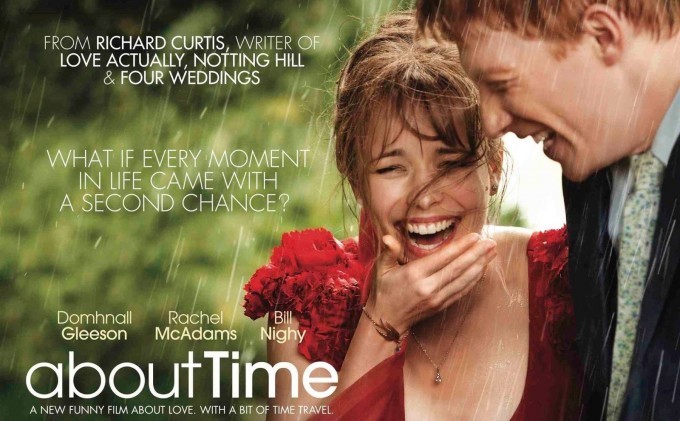
The Plot:
When a young man learns an extraordinary family secret he discovers he has the ability to time travel and relive or even change the past. Exploring his newfound abilities he learns valuable lessons about life, love and family.
The Good:
Writer Director Richard Curtis is the undisputed master of heart-warming romantic comedy and with About Time he delivers another satisfying slice of feel-good. Confident in his well-practiced romantic formula Curtis adds even more whimsical fantasy with the added element of time travel. More interestingly About Time also looks beyond a predictable love story to explore the love between a father and son.
Curtis has always been able to rely of the effortless charms of leading men like Hugh Grant or Colin Firth and in young rising star Domhnall Gleeson he continues that tradition. Gleeson gives a performance packed with likeable everyman charm. Rachel McAdams is equally endearing as Mary the American object of his determined affections. However as with Curtis’s definitive effort Love Actually, it’s actually Bill Nighy who steals the show as our heroes doting dad.
Nighy and Gleeson craft a sincere portrayal of the profound bond between a loving father and adult son as the film makes a surprising shift in focus at its halfway mark. It’s a relationship so rarely given proper focus on the big screen, but just as moving and powerful as any romantic love story. It’s a tribute to the film’s success at adequately capturing that love that over 90% of the audience will likely immediately call their family after leaving the cinema to tell them how much they love them.
The film could easily have stumbled over the confusing complexities of time travel. Luckily Curtis simply sidesteps unnecessary over thinking and keeps things as simple as possible. It’s an obvious source of easy comedy, but it’s also a clever vehicle for exploring love, loss, pain and joy.
The Bad:
Richard Curtis is often accused of being overly sentimental or saccharine and those who find his trademark romantic comedy formula more irritating than inspiring will probably have a similar reaction to About Time as his previous efforts. In essence, yet again likeable central characters fall happily in love surrounded by silly eccentric friends and whilst living mostly stress free lives.
While some will commend the film’s efforts to explore fresh territory and look beyond merely a simple story of boy gets girl, others may find it less purely romantic the Curtis’s past offerings like Notting Hill or Love Actually.
The Ugly Truth:
About Time is by his own admission Richard Curtis’s most personal work to date. Whilst it features all the familiar elements of his previous films it’s perhaps even more whimsical, thoughtful and profound.
Rush Review
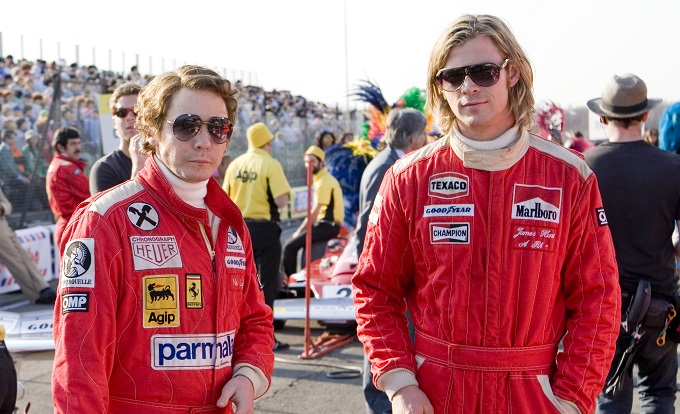
The Plot:
Ron Howard re-creates the world of 1970s Formula One, dramatizing the electrifying rivalry between James Hunt and Niki Lauda, both on and off the race track. It’s a fascinating portrait of two very different champions; one a playboy daredevil and the other a neurotic technical genius. Focusing on their fierce battle for the 1976 world championship and the near fatal events which made it infamous.
The Good:
Simply put, Rush is a 200mph thrill ride packed with adrenalin, passion and personality. Screenwriter Peter Morgan proved with Frost/Nixon and The Queen that he could expertly craft the real life story of iconic figures locked in intimate battles. With Rush, Morgan once again provides a well worded study in contrasts, sincerely dramatizing familiar characters in their public and private moments.
A flawless cast, led by a star-making turn from Daniel Bruhl as fiery tempered Austrian Niki Lauda and a predictably charismatic performance by Chris Hemsworth as James Hunt, helps ignite the engine of a great script. Bruhl does a remarkable job of mimicking Lauda, expertly channelling his instantly recognisable voice and wry angry humour. Hemsworth likewise may surprise some people with his competent posh English accent and ability to add subtle layers to his innate rugged charms.
Hans Zimmers pulsing soundtrack exquisitely compliments the deafening roar of supercharged engines. A convincing combination of archival footage, CGI magic and on board cameras also puts audiences right in the driving seat of vintage Formula One races. Director Ron Howard showcases astonishing cinematography and a dedicated eye for historical detail. Overall the film easily equals past efforts like Apollo 13 and arguable represents his finest work to date.
The Bad:
It’s hard to find fault with the superb ride Rush offer audiences. Ron Howard delivers a near perfect package of technically accomplished action, fuelled by wit and passion. You certainly don’t need to be an expert Formula One fanatic to enjoy great storytelling.
The harshest of historical critics may quibble over the extent to which the film sensationalises the rivalry of two men who were in truth actually more friends than bitter adversaries in real life. However given everything the film does right it’s only fair to forgive it a little Hollywood oversimplification. Reducing Hunt and Lauda to caricatures, the playboy and the perfectionist, is a deliberate choice to streamline the narrative and ramp up the tension.
The Ugly Truth:
Rush is easily one of the finest films on release this year and an obvious early contender in several Oscar categories. Excellent storytelling makes it just as accessible for the uninitiated as for dedicated racing fans.
Red Carpet video Interviews below from the Rush World Premiere in Leicester Square: